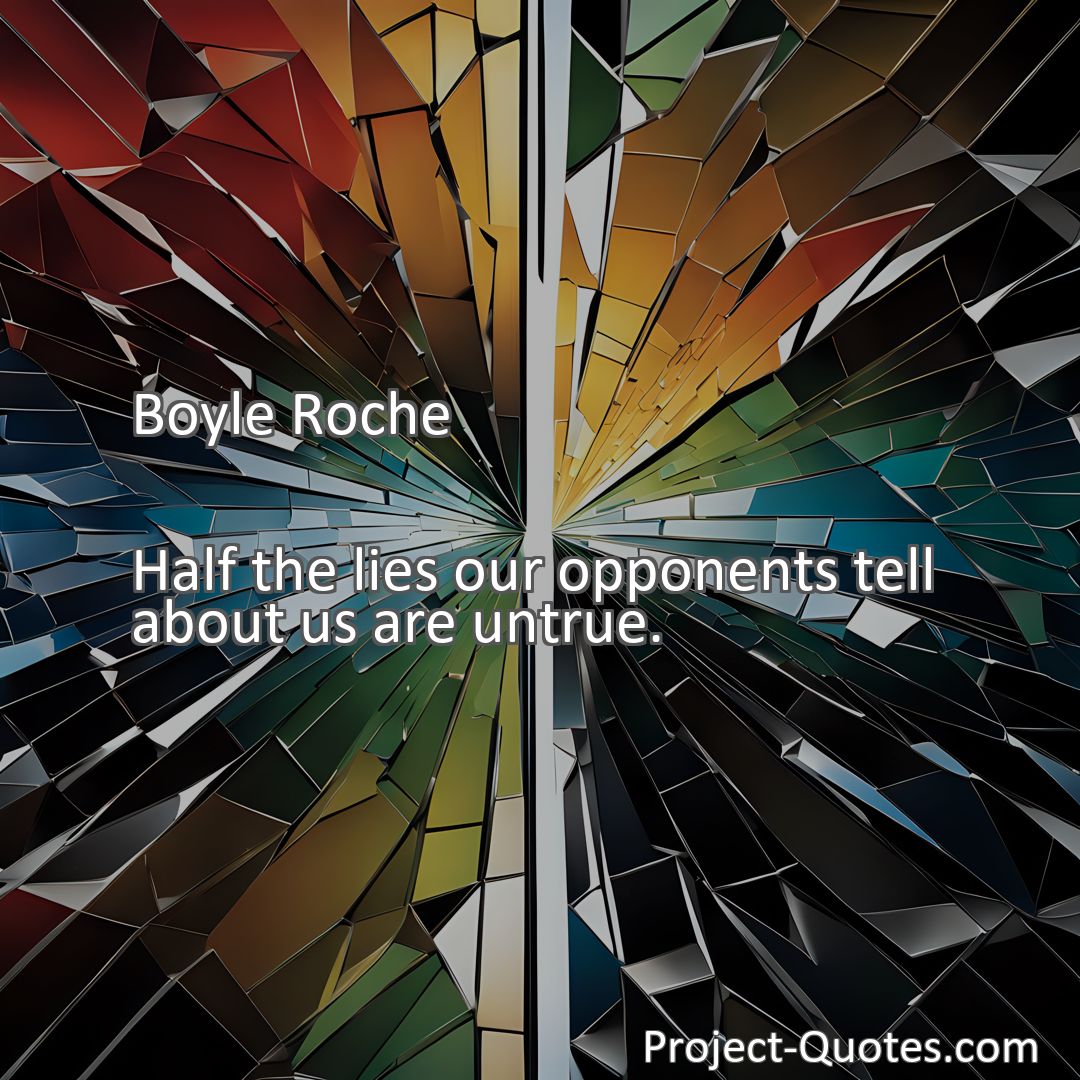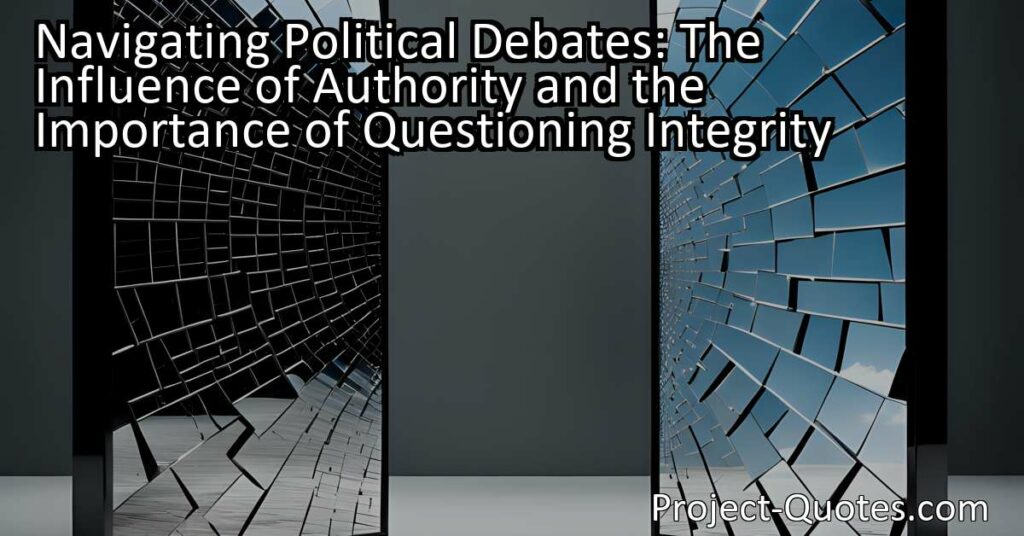Half the lies our opponents tell about us are untrue.
Boyle Roche
Navigating Political Debates: The Influence of Authority and the Importance of Questioning IntegrityIn the realm of politics, lies and distortions often dominate debates as opponents strive for an upper hand. However, it is crucial to prioritize integrity and critically evaluate claims made by both sides. Recognizing the power dynamics at play and seeking diverse sources of information can help us make informed decisions and ensure that the truth prevails despite the influence wielded by those in positions of authority.
Table of Contents
Meaning of Quote – Half the lies our opponents tell about us are untrue.
In the realm of politics and heated debates, it is often said that half the lies our opponents tell about us are untrue. This witty remark playfully highlights the age-old tactic of bending the truth to gain an upper hand. However, beneath the lightheartedness lies a profound truth about the nature of political discourse and the manipulation of information for personal or ideological gain. In this article, we will delve into the importance of integrity, critical thinking, and the responsibility of individuals to question the veracity of information presented by both opponents and allies.
First and foremost, let us reflect on the significance of integrity in political debates. Integrity, defined as adhering to moral and ethical principles, serves as the foundation of trust and credibility in any form of communication. When we are engaged in heated discussions, particularly in the political sphere, it is essential to maintain our integrity and handle information with honesty and transparency. By doing so, we not only promote a respectful dialogue but also demonstrate our commitment to the truth.
However, the unfortunate reality is that political debates often devolve into a battle of narratives, with opponents on both sides frequently resorting to lies and distortions to promote their agenda. This is where critical thinking becomes essential. As citizens, it is our responsibility to carefully evaluate the claims made by our opponents, assess their credibility, and question the motives behind their arguments. By cultivating a critical mindset, we can protect ourselves from falling victim to manipulative tactics employed by both sides of the political spectrum.
In the context of such debates, it is crucial to recognize that lying is not confined to a particular political ideology or group. This quote reminds us that our opponents are equally susceptible to dishonesty, just as we are. In the pursuit of victory or advancing their cause, people may resort to spreading false information or distorting the truth to gain an upper hand. It is not only important to identify lies told by our opponents but also to acknowledge that similar untruths may exist within our own camp. By acknowledging this fact, we can foster an environment wherein the focus shifts from attacking opponents for their lies to collectively ascertaining the validity of information put forth by anyone in the political discourse.
Furthermore, it is essential to recognize the power dynamics at play in political debates. The momentous task of distinguishing truth from falsehood is compounded by the fact that politicians and those in positions of authority often wield considerable influence over the flow of information. Biased media outlets, selective reporting, or outright propaganda can shape public opinion by manipulating facts or omitting crucial information. As individuals, it is incumbent upon us to seek out diverse sources of information, cross-reference facts, and critically evaluate the claims made by both our opponents and our allies.
Moreover, the quote sheds light on the complexity of discerning objective truth in a world where subjective interpretations and personal biases can cloud our judgment. Each side in a political debate tends to believe that their perspective aligns with the absolute truth, while the other side is the purveyor of lies. In reality, the truth often lies somewhere in the middle, muddled by a multitude of opinions and interpretations. The quote, therefore, encourages us to approach information with a healthy skepticism, understanding that it may be distorted to fit a specific narrative. By doing so, we can strive to form an objective viewpoint that takes into account multiple perspectives, enabling us to make informed decisions.
In conclusion, the quote “Half the lies our opponents tell about us are untrue” serves as a lighthearted reminder of the prevalence of deception and distortion in political debates. It highlights the need for individuals to maintain integrity, employ critical thinking, and take responsibility for evaluating the veracity of information presented by both opponents and allies. By cultivating a discerning mindset and seeking out diverse sources, we can navigate the complex landscape of political discourse with greater clarity and ensure that the truth ultimately prevails.
I hope this quote inspired image brings you hope and peace. Share it with someone who needs it today!


